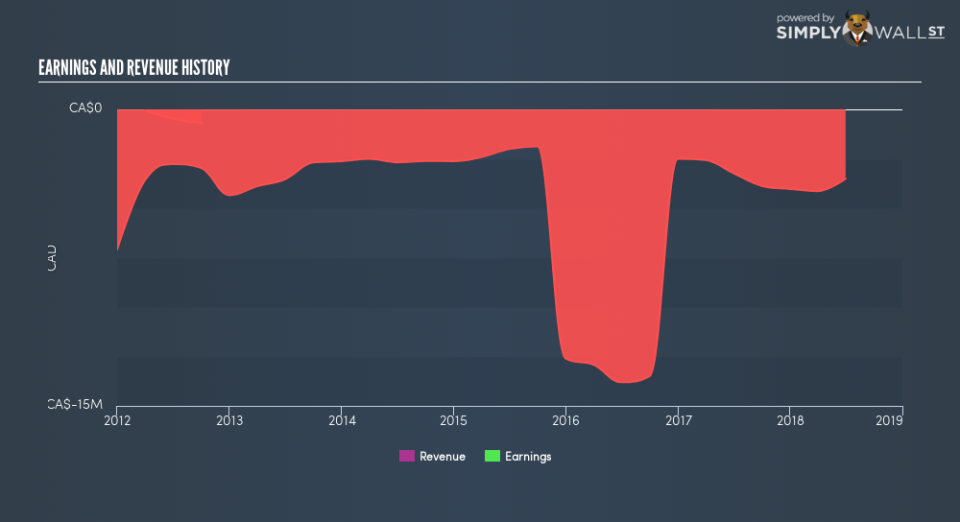Do Directors Own Erdene Resource Development Corporation (TSE:ERD) Shares?

A look at the shareholders of Erdene Resource Development Corporation (TSE:ERD) can tell us which group is most powerful. Large companies usually have institutions as shareholders, and we usually see insiders owning shares in smaller companies. Warren Buffett said that he likes ‘a business with enduring competitive advantages that is run by able and owner-oriented people’. So it’s nice to see some insider ownership, because it may suggest that management is owner-oriented.
With a market capitalization of CA$39m, Erdene Resource Development is a small cap stock, so it might not be well known by many institutional investors. Taking a look at the our data on the ownership groups (below), it’s seems that institutions are noticeable on the share registry. Let’s take a closer look to see what the different types of shareholder can tell us about ERD.
Check out our latest analysis for Erdene Resource Development
What Does The Institutional Ownership Tell Us About Erdene Resource Development?
Institutional investors commonly compare their own returns to the returns of a commonly followed index. So they generally do consider buying larger companies that are included in the relevant benchmark index.
We can see that Erdene Resource Development does have institutional investors; and they hold 6.3% of the stock. This suggests some credibility amongst professional investors. But we can’t rely on that fact alone, since institutions make bad investments sometimes, just like everyone does. When multiple institutions own a stock, there’s always a risk that they are in a ‘crowded trade’. When such a trade goes wrong, multiple parties may compete to sell stock fast. This risk is higher in a company without a history of growth. You can see Erdene Resource Development’s historic earnings and revenue, below, but keep in mind there’s always more to the story.
Erdene Resource Development is not owned by hedge funds. As far I can tell there isn’t analyst coverage of the company, so it is probably flying under the radar.
Insider Ownership Of Erdene Resource Development
The definition of an insider can differ slightly between different countries, but members of the board of directors always count. Management ultimately answers to the board. However, it is not uncommon for managers to be executive board members, especially if they are a founder or the CEO.
Insider ownership is positive when it signals leadership are thinking like the true owners of the company. However, high insider ownership can also give immense power to a small group within the company. This can be negative in some circumstances.
We can see that insiders own shares in Erdene Resource Development Corporation. It has a market capitalization of just CA$39m, and insiders have CA$3.3m worth of shares, in their own names. Some would say this shows alignment of interests between shareholders and the board, though I generally prefer to see bigger insider holdings. But it might be worth checking if those insiders have been selling.
General Public Ownership
The general public, mostly retail investors, hold a substantial 77% stake in ERD, suggesting it is a fairly popular stock. This level of ownership gives retail investors the power to sway key policy decisions such as board composition, executive compensation, and the dividend payout ratio.
Public Company Ownership
It appears to us that public companies own 8.1% of ERD. It’s hard to say for sure, but this suggests they have entwined business interests. This might be a strategic stake, so it’s worth watching this space for changes in ownership.
Next Steps:
It’s always worth thinking about the different groups who own shares in a company. But to understand Erdene Resource Development better, we need to consider many other factors.
I like to dive deeper into how a company has performed in the past. You can find historic revenue and earnings in this detailed graph.
Of course this may not be the best stock to buy. So take a peek at this free free list of interesting companies.
NB: Figures in this article are calculated using data from the last twelve months, which refer to the 12-month period ending on the last date of the month the financial statement is dated. This may not be consistent with full year annual report figures.
To help readers see past the short term volatility of the financial market, we aim to bring you a long-term focused research analysis purely driven by fundamental data. Note that our analysis does not factor in the latest price-sensitive company announcements.
The author is an independent contributor and at the time of publication had no position in the stocks mentioned. For errors that warrant correction please contact the editor at editorial-team@simplywallst.com.

 Yahoo Finance
Yahoo Finance 

